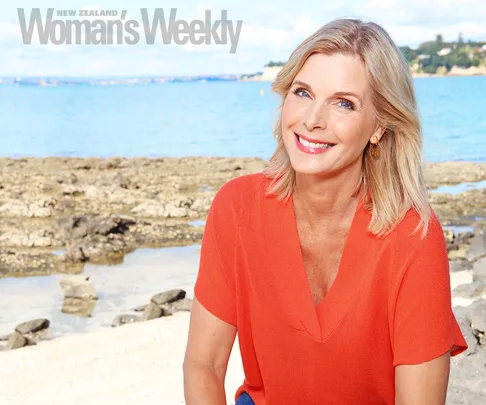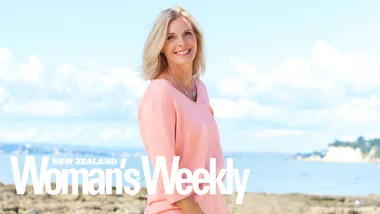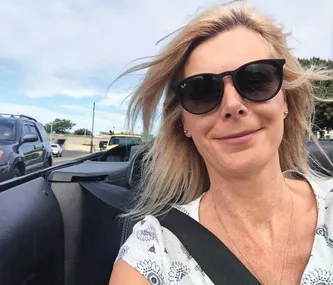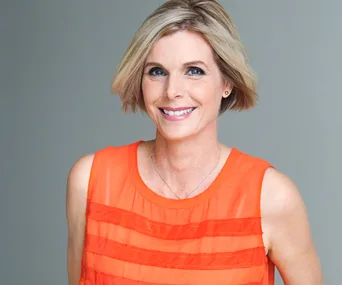It’s been a long time since Jude Dobson last shared words of wisdom in the New Zealand Woman’s Weekly via her column Ask Jude.
So long, in fact, that when she’s asked how many years she did it, there’s a rather lengthy pause.
“Um, I know I started in the early ’90s, when I was a young woman living in Ohakea and my husband was in the air force, and I actually had a computer at home, which was pretty cool,” she says, racking her brain for dates.
“Was it 1991? I know I was in my 20s. I can remember some of the letters, but I can’t remember how longI did it for. Hmm.”
Jude’s memory may have failed her on that point, but her ability to help readers deal with some of the dilemmas life throws at them is still as spot-on as ever, as we’ll get to see now that she has returned to the Weekly with a new advice column, Hey Jude.
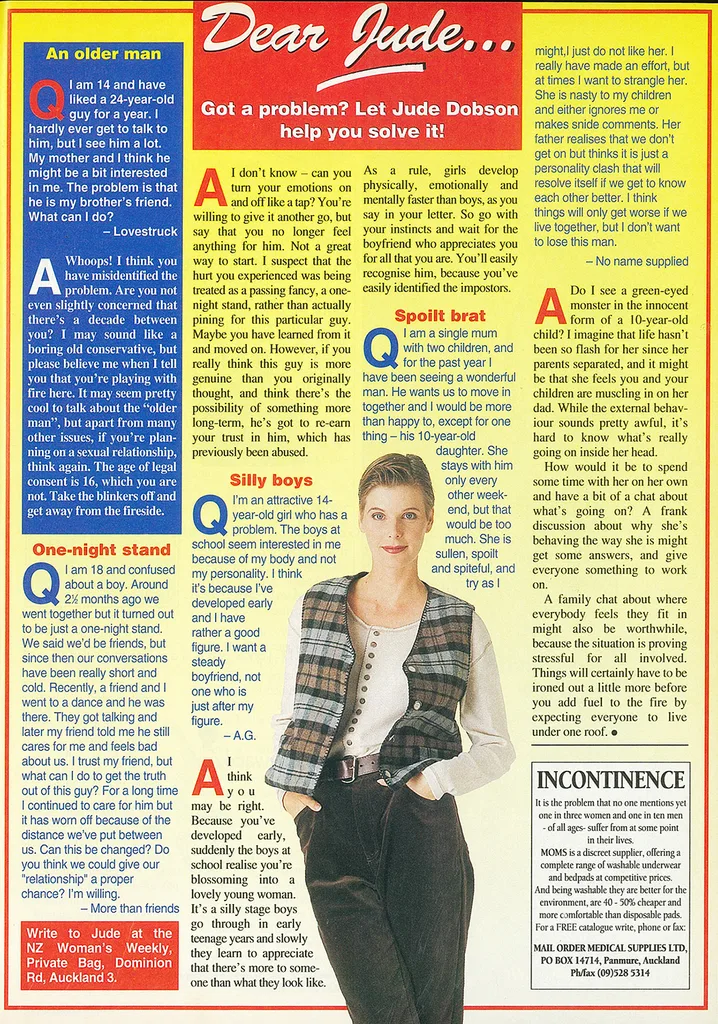
After a quarter-century Jude is back with a new advice column
The former TV host turned producer and documentary maker has been looking forward to coming back to the magazine, which first featured her in an article in 1989 when she landed the job on game show Sale of the Century.
By our reckoning, she was our advice columnist from 1994 to 1997, tackling questions on everything from falling out with friends to meddling mothers-in-law. After that, her Weekly column changed from advice to handy tips and recipes to tie in with her TV show, 5.30 with Jude.
Although she’d had training as a Lifeline counsellor when she took on the column, she was somewhat lacking when it came to life experience.
“But I think my answers were pretty good and from a couple that I’ve looked at, I think I’d say the same thing today.”
She’s since had the benefit of considerable life experience, especially when it comes to parenting and being a member of the “sandwich generation” – looking out for both children and ageing parents – and has also picked up valuable insights along the way from research she’s done, particularly for Raising Children, an online video resource she puts together.
“And I think life experience doesn’t just have to mean what you’ve been through personally, but it’s from being around friends and family, and seeing how they have dealt with things. I’ve certainly been through plenty of that.”
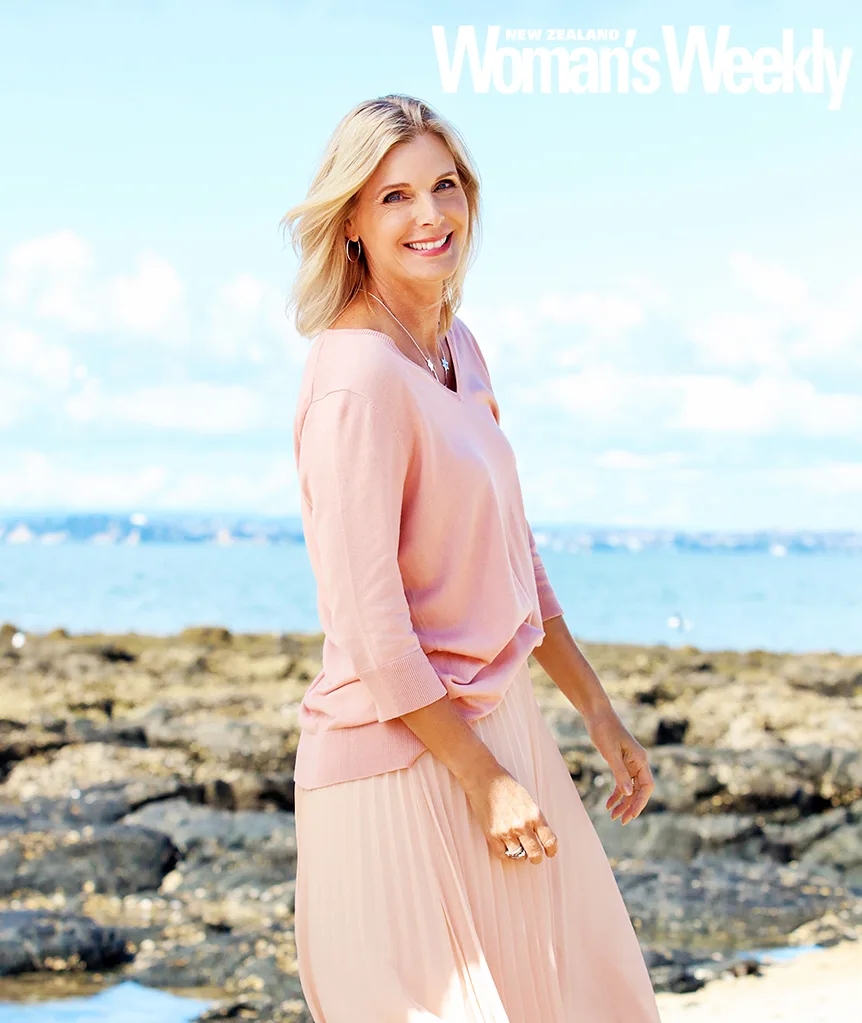
Adding an empathetic nature and a no-nonsense attitude to those life lessons she’s learned along the way will help her to make useful suggestions – she doesn’t like the term “dispense advice” – to people who write into the Weekly with issues they need assistance with.
“Whatever you do, don’t describe me as the font of all knowledge,” she implores.
“That I am most definitely not. I’m more of a friendly ear, someone who’s just had a bit of experience.
“I’m not a really earnest person and if you want really serious advice, then you should go to a counsellor for it. But I’m also not that flippant person either, the one who says, ‘Oh mate, what are you worried about?’ I think I sit somewhere in the middle.
“I’ve found that a problem shared can be a problem halved and sometimes even just writing down how you’re feeling about a situation can get your thoughts in perspective.
“And when other people read these letters, they can relate to them and think, ‘Oh, that’s me.’ They might not have been able to write that letter themselves, but it can help them knowing they are not the only one going through something.”
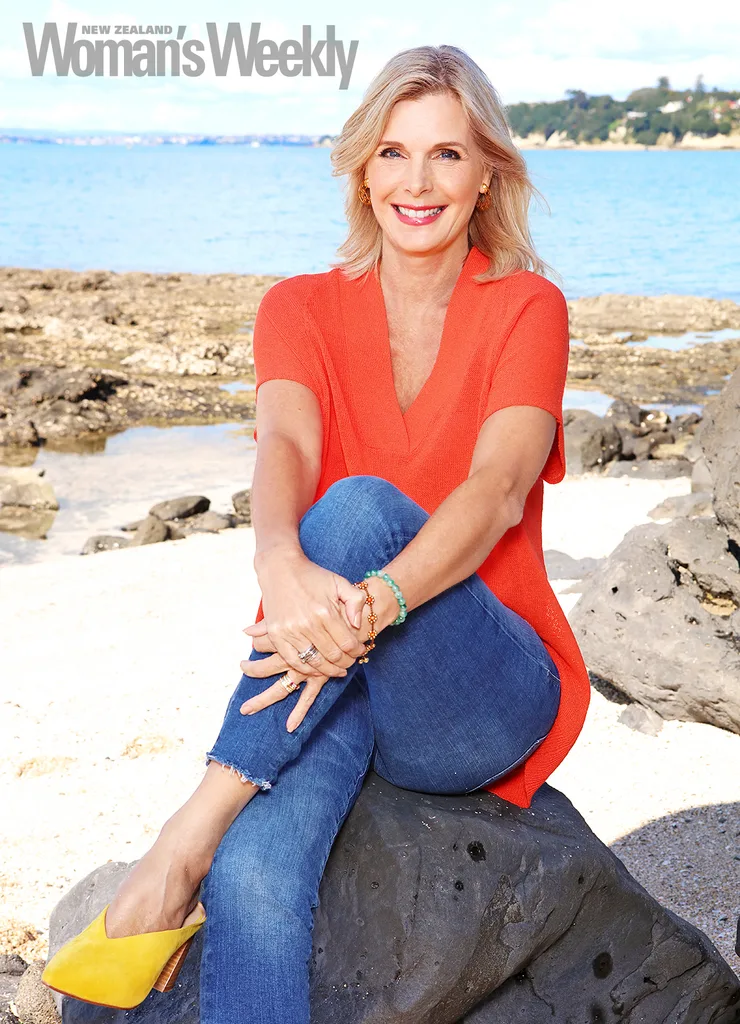
Like anyone else, Jude has had her fair share of ups and downs in life.
She has lost both her parents in the last couple of years – her mum Naomi died in 2016 and dad Bill passed away in July last year, and she misses them dreadfully.
She’s also missed her two oldest children while they’ve been living overseas – daughter Ella (23) has been working as an animator in New York, while son Jack (21) went to the University of Washington in Seattle on an exchange programme. The youngest, Rosie (15), is still at home with Jude and her husband Graeme.
Although she’s had great success with Raising Children and a documentary series she made about Kiwi involvement in World War I, last year she was turned down for funding for another project.
“That was so disappointing, but I’ll just have to find other ways to fund it.”
And there were certainly plenty of highs and lows throughout her TV career, which she nearly gave up after three months, thanks to a barrage of unpleasant comments about “having too much personality” after she started on Sale of the Century.
“I don’t think anyone can say they haven’t had times when they’ve struggled. Life seems to be on a sliding scale, and we all go up and down that scale.”
“I know people who’ve battled really tough times, thinking, ‘Can I get up in the morning? Is this worth it?’ I went through a difficult time myself in my 20s when I’d gone to Japan on a modelling contract and I came back feeling horribly depressed and disillusioned, and not knowing what I really wanted to do. Before that I’d been nursing and I wanted to keep using the knowledge I had gained, but not in the nursing field.
“I felt like I had lost my way and that I didn’t fit in any world. I went back to live with my parents to lick my wounds and try to figure out what to do next.
“I ended up going into the pharmaceutical field and from there I went to television. But for a while, I hit the wall and I think that is something most of us go through at some stage.”
She laughs as she adds, “Now I’m 52 and I still don’t know what I want to do when I grow up!”
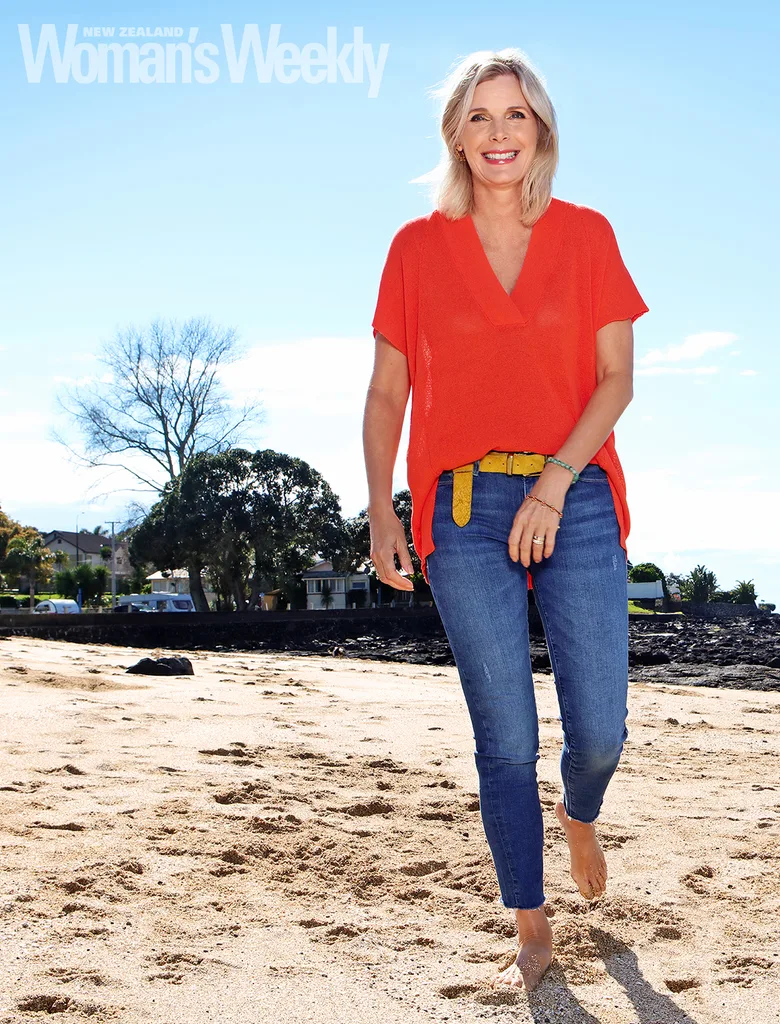
The key to surviving those ups and downs is resilience, Jude says.
“You need to be able to get back up again and I’m not saying it is easy because it isn’t, but you’ve got to figure out how to just keep moving forward.
“That’s one of my mantras – just keep moving forward. Sometimes it is just a matter of putting one foot in front of the other and not thinking about the next step.
“The other thing I have always said to myself is to just do one achievable thing every day. It can be different things for different people, whether it is sending an email or doing a job around the house. It helps you to see that you can get things done, even if everything seems overwhelming.”
The best advice she ever got was from her mum Naomi, when she first became a mother.
“She told me to remember in the tough times, ‘This too will pass’, and I think that’s good advice for life, not just when it comes to parenting.”
She had great role models in her own parents, and says she’s pleased that she took the time to sit down with them both and film conversations about their lives.
“They talked about all sorts of things and I found out stuff that none of the family knew. I am so glad I did it, especially now they are gone.”
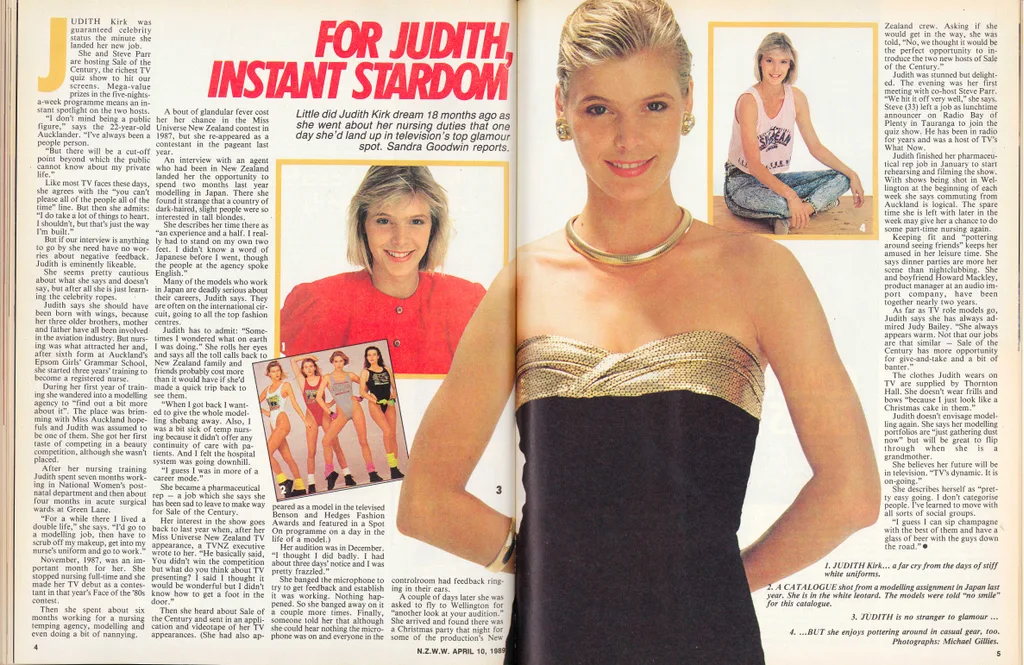
Jude in her very first story for the Weekly in April 10, 1989.
She’s also glad that she got to spend time with her dad Bill, before he passed away at 94.
She’d just come back from a work trip to France. Before leaving, she’d joked, “Don’t do anything while I’m away.”
“He said, ‘I will wait until you get home,’ and he did – he died two days later. I had seen him when I got home and been able to tell him about everything I had done in France. And he’d made me stewed apple – he knew I liked stewed apple.
“I still feel so sad, but I also feel happy that he died in the way he would have wanted to. He was on the window seat having an afternoon nap after mowing the lawn. I think when it comes to Dad, gratefulness wins over grief, for the way he went.”
It was because of her dad that Jude developed an interest in the part Kiwis played in World War I. During an earlier trip to France, she had researched the war service of Bill’s father Ernest Kirk, who had fought on the Western Front.
“Dad didn’t know much about his father’s story because he had died when Dad was 16, so I did some research and then, when I was in France in 2017, I followed in his footsteps and found the house where his father had been when he’d arrived.”
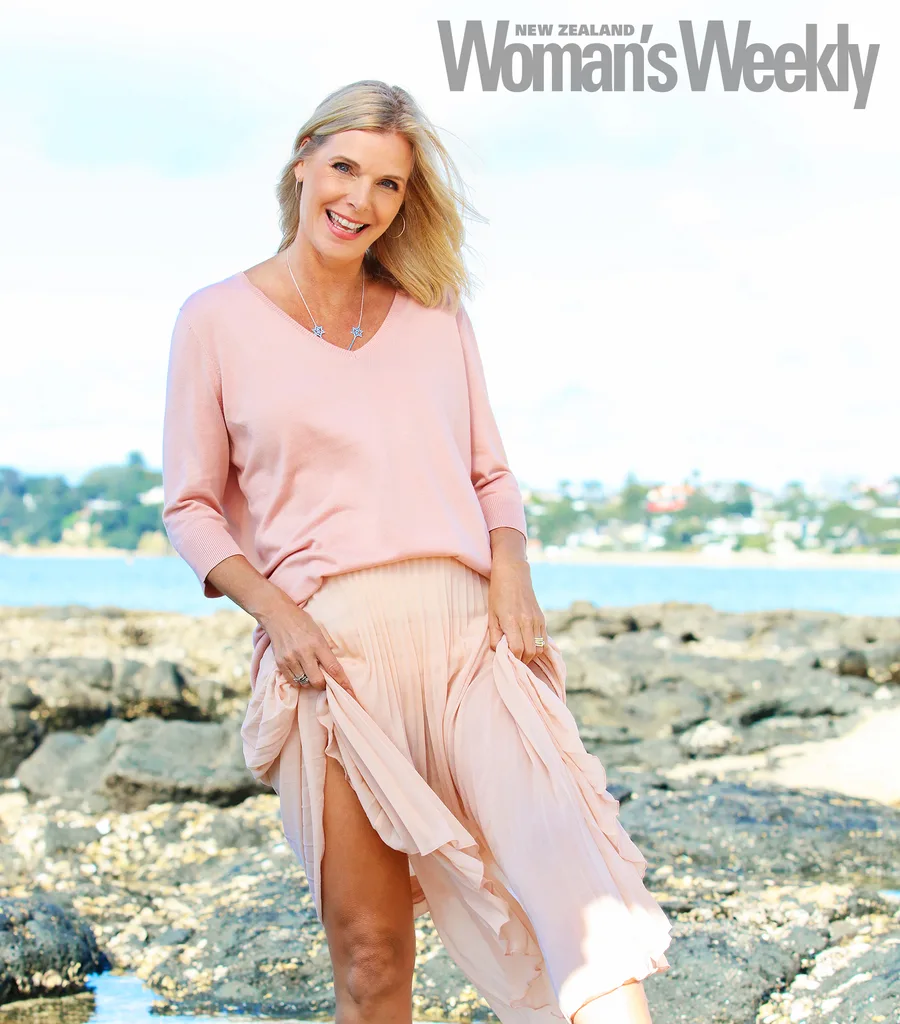
Jude wrote an article about her grandfather’s war for the New Zealand Herald and it got her thinking about telling the stories of other Kiwis.
She began looking into how New Zealand troops liberated the French fortress town of Le Quesnoy from the Germans by scaling a 13m wall with a flimsy ladder in November 1918, a week before the war ended.
As well as unearthing stories about the Kiwis who took part, she filmed the centenary and hopes to put it all together in a resource that can be used in schools.
“I’m trying to get funding to do that – it would be a great way for students to learn about what went on. It’s an amazing story.”
She’d love to make more documentaries and also hopes to do more study for a post-graduate degree in public health she’s been working away at. And of course, she’ll find time to help Weekly readers with their lives and questions.
“I love being able to connect with people, to hear their stories. And if I can help in some way, that’s great.”
